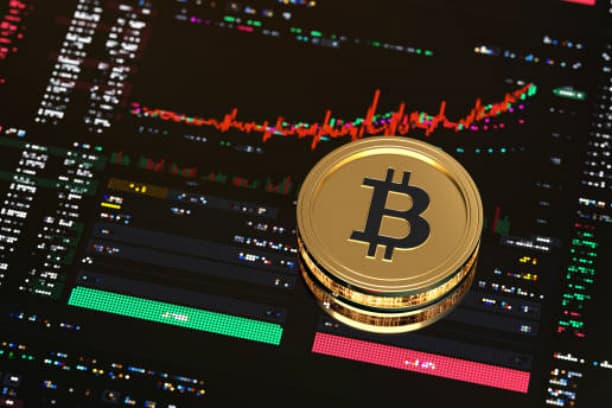What are digital money wallets? Are cold wallets really safe?
With the booming of the digital currency market, how to safely store and manage cryptocurrency has become an important issue for every investor. Digital currency wallet is undoubtedly the most basic tool, and choosing which type of wallet is the safest has become one of the most important concerns. Today, we are going to explore in depth the types of digital currency wallets, especially the security of cold wallets, to help you choose the most suitable custodial solution for you in this market where both risks and opportunities exist.

What are the types of Digital Wallets?
Digital wallets can basically be categorized into two main types: hot wallets and cold wallets. Hot wallets are wallets that are connected to the Internet, which are easy and fast to use, but also exposed to the risk of cyber attacks, while cold wallets are wallets that are offline, which are generally considered to be a safer way of storing money.
Hot wallets are one of the most common types of digital currency wallets, which can be used on a variety of devices (e.g., cell phones, computers, etc.) and support real-time transactions. Common types of hot wallets include hardware wallets (e.g. Ledger, Trezor) and software wallets (e.g. MetaMask, Trust Wallet). Despite their convenience, hot wallets are susceptible to hacking, viruses, Trojans, and other threats because they are always connected to the Internet.
Cold wallets are wallets that are completely disconnected from the Internet. There are two types of these wallets: hardware cold wallets (e.g. Ledger, Trezor, etc.) and paper wallets. The advantage of cold wallets is that they minimize the risk of being stolen by hackers, making them the best choice for long-term holders.
Hot wallet vs. cold wallet: the pros and cons of both
When it comes to choosing a digital currency wallet, hot wallets and cold wallets each have their own advantages and disadvantages. Hot wallets have the advantage of fast trading and easy access, making them ideal for investors who need to trade frequently. Hot wallets are mostly free to download and easy to use, support a wide range of digital currencies, and are very user-friendly, especially for newcomers.
The biggest problem with hot wallets is security. Since they are always connected to the internet, they are vulnerable to all kinds of cyber attacks, especially if you are using a device (such as a cell phone or computer) that is not adequately secured. If there is a security breach on an exchange or third-party service, your assets are also at risk of being stolen.
In contrast, cold wallets are much more secure. Since cold wallets are offline and only connect to the Internet when you need to make a transaction, it is virtually impossible for hackers to steal your digital currency through a cyber attack. The downside of cold wallets is that they are relatively cumbersome, requiring you to physically make each transaction and making it very difficult to retrieve your assets if they are lost or damaged.
Conclusion: If you are a long-term holder and do not intend to trade frequently, cold wallets are obviously the best choice; if you are a daily active trader, the convenience of a hot wallet will allow you to get twice the result with half the effort, but at the same time pay attention to strengthening the security protection.
Is cold wallet really safe?
Cold wallets are indeed more secure than hot wallets, but that doesn't mean they are completely risk-free. Although cold wallets are not directly exposed to cyber-attacks, their security is still dependent on a number of factors. The way the private key is stored in the wallet is critical. Many cold wallets store their private keys in USB devices or hardware wallets, and if these devices are lost or damaged, the assets may not be recoverable. Therefore, when using a cold wallet, you must keep your auxiliary word and private key safe and try to avoid storing them in a place where they can be easily lost or damaged.

Even with cold wallets, there are some human factor security risks. For example, if you give your cold wallet to a third party for safekeeping, this third party may use your private key for improper operations. Unencrypted backups are also a major risk, as hackers who have access to your backups can still recover and steal your assets. Therefore, the security of Cold Wallet still depends on the user's self-defense, and improper operation can also lead to the loss of assets.
How to choose the right wallet for you?
The first thing you need to consider when choosing a digital currency wallet is your own needs. If you are a new investor and intend to trade more frequently, then a hot wallet may be a more appropriate choice. These wallets offer a simple interface and support a wide range of cryptocurrencies, allowing you to get started quickly.
If you are a long-term holder or an institutional investor, cold wallets will be a safer option. Especially if you hold a large amount of digital currency, using a cold wallet can effectively reduce the risk of theft. By choosing a reputable cold wallet, such as Ledger or Trezor, and ensuring that you keep your tokens and private keys safe, you can maximize the security of your assets.
There are some additional considerations, such as wallet compatibility, ease of use, and whether it supports dual authentication. All of these will enhance your experience and increase the security of your wallet.
Frequently Asked Questions Q&A
1. What should I do if I lose my cold wallet?
If your cold wallet is lost, but you have a backup of your helpers or private key, you can still recover your assets. Make sure you back up and keep this information safe when setting up your cold wallet.
2. Is there a difference in transaction speed between Hot Wallet and Cold Wallet?
Typically, hot wallets are faster because they are directly connected to the network and require no additional operations. Cold wallets, on the other hand, are slightly more cumbersome as you need to transfer assets from the cold wallet to the hot wallet before you can make a transaction.
3. Do I need to insure my cold wallet?
Cold wallet insurance is not yet widely available in the market. Therefore, the management of cold wallets still needs to rely on the users themselves.














